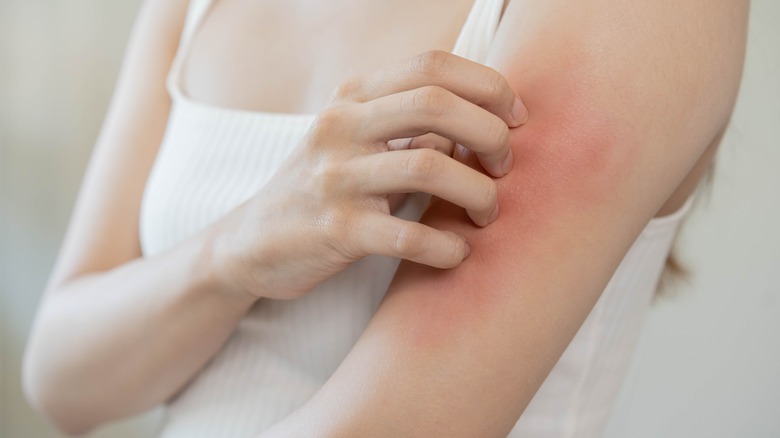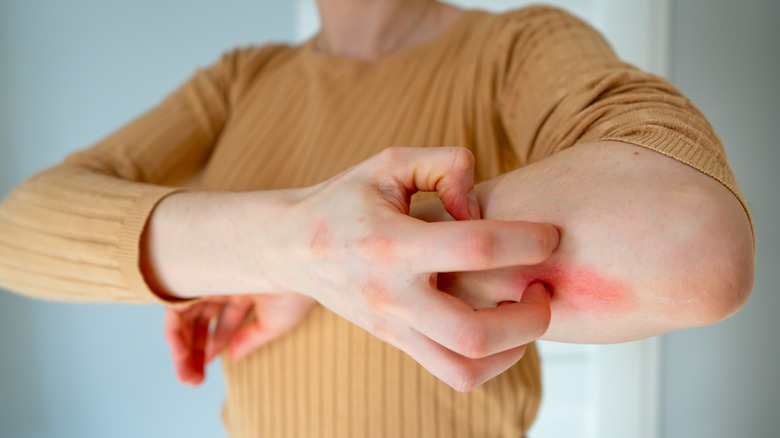Heat Rash Vs Eczema: How To Spot The Difference
Getting to the bottom of the cause of the itch is the best way to treat it, particularly when an itch is consistent and causes redness, bumps, or a rash (per the Mayo Clinic). There is a wide variety of causes of itchiness, from contact dermatitis and allergic reactions to psoriasis and bug bites, but two common causes are heat rash and eczema. Though they are often mistaken for each other, their root cause and manifestations differ.
The biggest difference between heat rash and eczema is that heat rash is temporary and occurs when the skin is exposed to high temperatures and humidity, per Verywell Health. On the other hand, eczema is chronic and can last years or even a lifetime.
Both heat rash and eczema can result in bumps and, when scratched, can release fluid. Also, both are characterized by a redness of the skin, although it can sometimes be hard to tell whether this resulted from scratching, since scratching an itch is such an instant reaction. Here's how to tell the difference between eczema and heat rash.
Heat rash is temporary
Heat rash occurs when sweat glands become clogged: Instead of sweat naturally being released through the pores, it gets stuck under the skin and causes a rash (via Verywell Health). The rash may appear as tiny bumps filled with fluid that feel tingly and inflamed, and while the skin may look irritated, it's usually not extremely red or swollen.
The biggest telltale sign to distinguish heat rash from eczema may be when the itch and irritation occur. "Heat rashes tend to go away with a change in environment," dermatologist Ife J. Rodney tells Prevention. Basically, when you cool down, the rash goes away.
The key to preventing heat rash is to avoid overheating. "With heat rashes, prevention works more than cure," explains Dr. Rodney."If you're prone to heat rashes, avoid tight clothing or clothing made of fabrics like spandex, especially in the summer. Stick to breathable fabrics."
Eczema must be managed
Eczema is also identified by red and itchy skin, but what differentiates it from heat rash is that with eczema, the skin will have flaky patches that are very dry, and that dryness may eventually result in skin thickening, according to the Institute for Quality and Efficiency in Health Care (via NCBI). Eczema can stem from both genes and the environment, and may occur when there is a problem with the immune system causing inflammation in response to certain irritants.
Triggers include food, particularly allergies to allergies to wheat, cows' milk, eggs, peanuts, and soy, according to Healthline. Soap, detergent, and hormones are also big triggers, as are common environmental factors like pollen, mold, and pet fur. While heat rash can be caused by too much moisture in the form of humidity, eczema causes the skin to have problems retaining moisture, so dry air is often a trigger, though all changes in weather can bring on a flare-up.
While there is no cure for eczema, the best way to manage this chronic condition is to identify and then avoid your own personal triggers. It's also vital to keep skin moisturized and nourished. Your doctor can help manage flares by prescribing medication such as antihistamines, steroid creams, and antibiotics.


